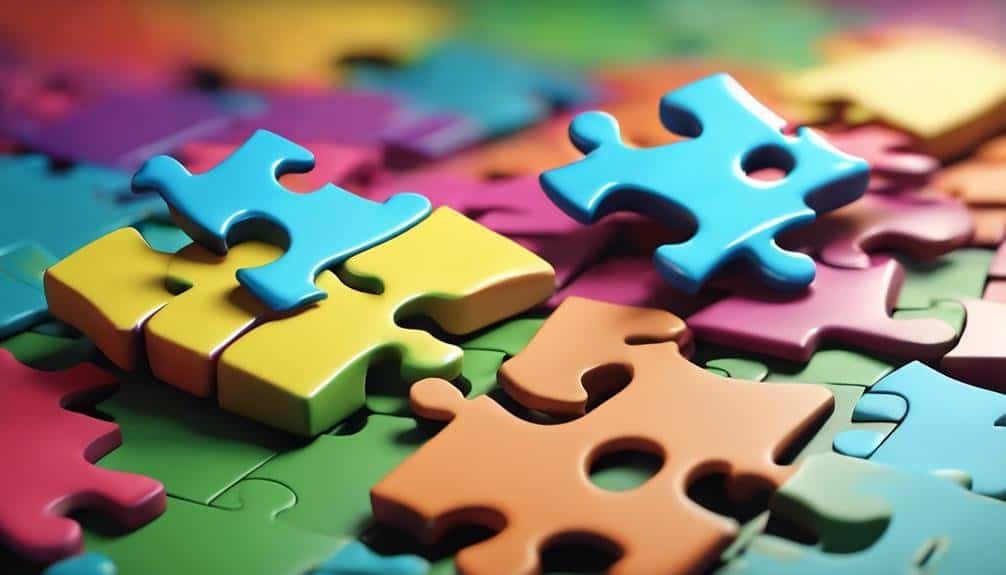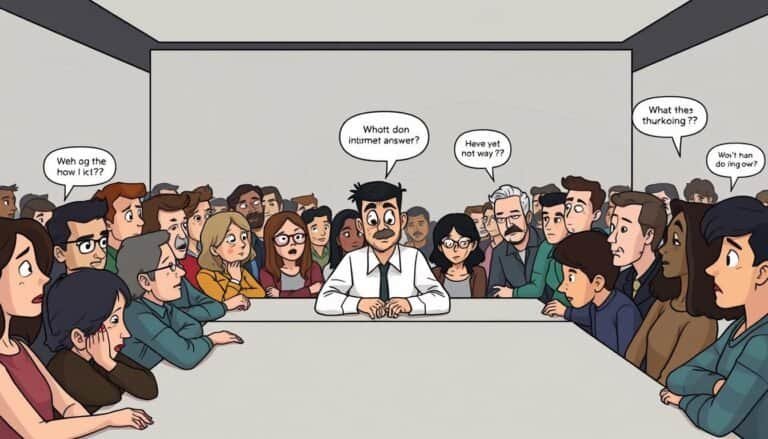How to Adjust Your Personality for Better Relationships
To adjust your personality for better relationships, start by understanding your communication style. Identify emotional triggers and practice active listening. Develop empathy and cultivate flexibility in your responses. Set healthy boundaries to prioritize your well-being. Enhance conflict resolution skills and build trust through openness. Continuously reflect on your behavior and seek improvement. Each aspect plays a crucial role in fostering healthier connections. Mastering these elements will lead to more fulfilling relationships with others.
Key Takeaways
- Recognize and adapt communication style for better connection.
- Practice empathy and active listening for understanding.
- Develop flexibility and adaptability in interactions.
- Manage emotions and triggers for healthier relationships.
- Set and maintain healthy boundaries for respect and well-being.
Understand Your Communication Style
To improve your relationships, understanding your communication style is essential in fostering effective and meaningful interactions. Communication is the cornerstone of any successful relationship, be it personal or professional. By delving into your communication style, you can enhance your ability to connect with others on a deeper level. Improving relationships starts with recognizing how you naturally communicate and how it may impact your interactions with others.
Take the time to reflect on how you typically express yourself. Are you more direct and to the point, or do you prefer a more indirect approach? Understanding your communication tendencies can help you tailor your message to better suit the needs of the person you're communicating with. By adjusting your communication style to match the preferences of those around you, you can foster stronger connections and avoid misunderstandings.
Enhancing communication requires active listening and empathy. Pay attention to verbal and nonverbal cues to better gauge the responses of others. By being mindful of your communication style and adapting it as needed, you can nurture healthier and more fulfilling relationships.
Identify Your Emotional Triggers
When you pinpoint your emotional triggers, you gain valuable insight into your reactions to certain situations. Understanding these triggers can lead to a clearer comprehension of why you respond the way you do.
Recognize Emotional Triggers
Identifying your emotional triggers is essential for understanding how certain situations or interactions impact your feelings and behaviors. By exploring therapy or enhancing self-awareness, you can begin to recognize these triggers.
Pay attention to moments when you feel a sudden shift in emotions or find yourself reacting strongly to something. These are cues that can help you pinpoint what triggers your emotional responses. Keep a journal to track these instances and reflect on patterns that emerge.
Understanding your emotional triggers allows you to respond more thoughtfully in challenging situations and communicate effectively with others about your needs. It's a valuable step towards fostering healthier relationships and personal growth.
Understand Reactions Better
Understanding your emotional triggers is a key aspect of developing self-awareness and improving your reactions in various situations. Reacting mindfully and understanding triggers can help you navigate challenging interactions more effectively.
Here are some tips to help you identify and manage your emotional triggers:
- Reflect on past experiences that have triggered intense emotions.
- Pay attention to physical sensations that arise when you feel triggered.
- Practice deep breathing or grounding techniques to stay present.
- Consider seeking therapy or counseling to explore underlying triggers.
- Engage in self-reflection to understand how your past influences your present reactions.
Manage Responses Effectively
To effectively manage your responses in relationships, it's essential to pinpoint and acknowledge your emotional triggers. Emotion regulation plays a significant role in how you interact with others and handle conflicts. By identifying what situations or behaviors trigger strong emotional reactions in you, you can work towards managing your responses more effectively.
Understanding your emotional triggers allows you to navigate relationship dynamics with greater awareness and control, leading to healthier and more harmonious interactions. Take time to reflect on past experiences where your emotions may have influenced your responses negatively. By recognizing these triggers, you can proactively address them, improve your emotional intelligence, and foster more positive connections with those around you.
Practice Active Listening
When you practice active listening, you engage with empathy and reflect for understanding.
This means truly focusing on what the other person is saying without interrupting or formulating your response.
Engage With Empathy
By actively listening with empathy, you can strengthen your relationships and deepen your understanding of others. Engaging with empathy involves not just hearing but truly connecting with the emotions and experiences of those around you. Here are five ways to enhance your empathetic listening skills:
- Practice reflective listening to demonstrate your understanding.
- Ask open-ended questions to encourage sharing.
- Validate the other person's feelings to foster trust.
- Pay attention to non-verbal cues for deeper insights.
- Summarize what you've heard to guarantee clarity.
Reflect for Understanding
Enhance your relationships by actively reflecting on what others are saying, a key aspect of practicing active listening. Reflective introspection plays an essential role in understanding the nuances of communication within relationship dynamics.
When you engage in reflective listening, you show a genuine interest in comprehending the thoughts and emotions behind the words spoken. This practice allows you to explore deeper into the speaker's perspective, fostering a stronger connection and trust.
Develop Empathy and Understanding
Cultivating empathy and understanding towards others is essential for fostering meaningful and harmonious relationships. By actively engaging in empathy exercises and attending understanding workshops, you can enhance your ability to connect with others on a deeper level.
Here are five key ways to develop empathy and understanding:
- Practice Active Listening: Focus on what the other person is saying without interrupting or formulating your response in advance.
- Put Yourself in Their Shoes: Try to see things from their perspective to gain a better understanding of their thoughts and feelings.
- Show Empathy Through Body Language: Non-verbal cues like nodding and maintaining eye contact can convey your empathy and understanding.
- Ask Thoughtful Questions: Show genuine interest in the other person by asking open-ended questions that encourage them to share more.
- Attend Relationship Building Activities: Engaging in activities that promote teamwork and communication can strengthen your empathy skills.
Cultivate Flexibility in Your Responses
To improve your relationships, developing adaptability in how you respond is essential for managing various interactions and situations effectively. Adaptability training involves honing your ability to adjust your responses based on the specific context you're in. By engaging in flexibility exercises, you can become more versatile in your communication and problem-solving skills. This flexibility allows you to navigate conflicts and challenges with a greater sense of ease and openness.
Emotion regulation plays an important role in cultivating flexibility in your responses. By learning to regulate your emotions, you can avoid reacting impulsively in tense situations and instead respond thoughtfully and constructively. This ability to maintain emotional balance enhances your adaptability and enables you to approach interactions with a clear and level-headed demeanor.
As you work on cultivating flexibility in your responses, you'll notice a positive impact on your relationship growth. Your increased adaptability and emotional regulation will foster better communication, understanding, and connection with others. Embracing flexibility in your responses is a powerful tool for building strong and healthy relationships.
Work on Managing Your Emotions
Developing skills to effectively manage your emotions is essential for fostering healthy and fulfilling relationships. Emotion regulation and self-awareness play a significant role in how you interact with others and navigate relationship dynamics.
Here are five key strategies to help you work on managing your emotions:
- Practice Mindfulness: By staying present in the moment, you can better understand your feelings and respond thoughtfully.
- Identify Triggers: Recognizing what situations or behaviors trigger certain emotions can help you prepare and respond more constructively.
- Communicate Openly: Expressing your feelings in a clear and respectful manner can prevent misunderstandings and promote emotional intelligence.
- Seek Support: Don't hesitate to reach out to loved ones or a professional for guidance and perspective when dealing with intense emotions.
- Take Time for Self-Care: Engaging in activities that help you relax and recharge can improve your overall emotional well-being, positively impacting your relationships.
Set Healthy Boundaries
Establishing clear and healthy boundaries is essential for maintaining balanced and respectful relationships. Boundary setting allows you to define your personal space and communicate your needs effectively. When you establish boundaries, you are showing self-respect and teaching others how to treat you with respect as well.
| Importance of Boundary Setting | Examples of Setting Boundaries |
|---|---|
| Helps maintain respect in relationships | Clearly communicate your needs and expectations |
| Defines personal space | Be assertive when your boundaries are crossed |
| Facilitates effective communication | Set consequences for boundary violations |
| Demonstrates self-respect | Practice saying "no" when necessary |
| Teaches others how to treat you | Prioritize your well-being and mental health |
Enhance Your Conflict Resolution Skills
Setting healthy boundaries lays the foundation for effective conflict resolution skills, fostering understanding and cooperation in relationships.
When conflicts arise, it's essential to approach them with a mindset geared towards resolution. Here are some strategies and techniques to enhance your conflict resolution skills:
- Active Listening: Truly hearing the other person's perspective can de-escalate conflicts and show respect.
- Emotional Regulation: Learning to manage your emotions allows you to respond thoughtfully rather than react impulsively.
- Seeking Compromise: Finding middle ground through negotiation promotes mutual understanding and shows a willingness to cooperate.
- Empathy: Putting yourself in the other person's shoes can help you see things from their point of view, facilitating smoother resolutions.
- Effective Communication: Clearly expressing your thoughts and feelings while being open to feedback is essential for resolving conflicts constructively.
Foster Trust and Openness
To nurture strong and meaningful relationships, fostering an environment of trust and openness is crucial. Building rapport with others is vital in establishing a foundation of trust. This involves actively listening to others, showing empathy, and being genuine in your interactions. By demonstrating genuine interest in others and being transparent about your thoughts and feelings, you can create a safe space for open communication.
Maintaining authenticity is key in fostering trust and openness. People are more likely to trust and confide in you when they perceive you as genuine and sincere. Avoid being overly guarded or putting up walls that hinder genuine connections. Instead, aim to be honest and true to yourself while also being respectful of others' boundaries.
Remember that trust takes time to build, so be patient and consistent in your efforts to create a trusting environment. By prioritizing honesty, empathy, and authenticity, you can cultivate relationships that are based on mutual respect and understanding.
Continuously Reflect and Improve
Reflecting on your interactions and seeking ways to improve can lead to deeper connections and more fulfilling relationships. Engaging in a self-awareness journey is vital for personal growth and understanding relationship dynamics. Here are some self-improvement techniques to help you continuously reflect and enhance your interactions:
- Journaling: Take time to write about your thoughts and feelings after social interactions to gain insight into your behavior.
- Seek Feedback: Ask trusted friends or mentors for honest feedback on how you come across in relationships.
- Practice Active Listening: Focus on truly understanding others' perspectives before responding, enhancing communication and empathy.
- Set Personal Goals: Establish specific goals for improving your relationship skills and track your progress regularly.
- Mindfulness Exercises: Engage in mindfulness practices to increase self-awareness and regulate emotions in interactions.
Conclusion
As you navigate the intricate web of relationships, remember that like a garden, they require constant tending and care.
By adjusting your personality to better suit the needs of those around you, you're nurturing the seeds of connection and understanding.
Just as a flower blooms with the right amount of sunlight and water, your relationships will flourish when you cultivate empathy, communication, and self-awareness.
Keep nurturing your relationships, and watch them blossom into something beautiful.








